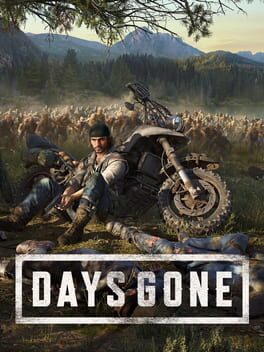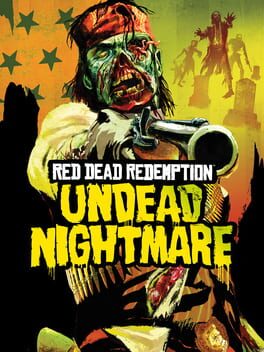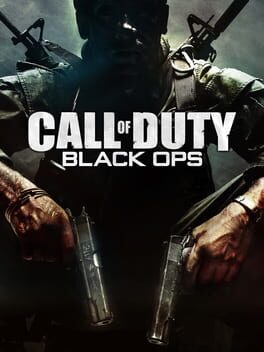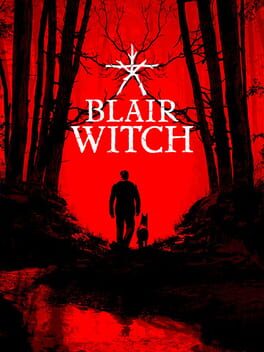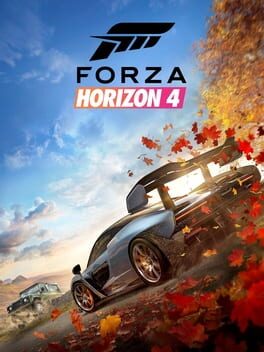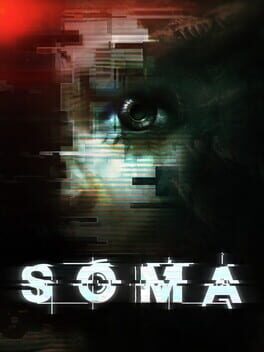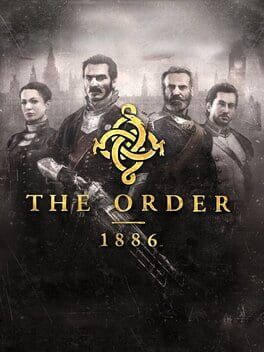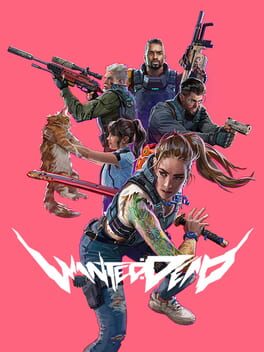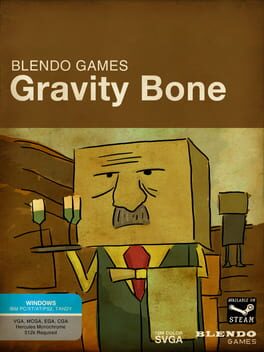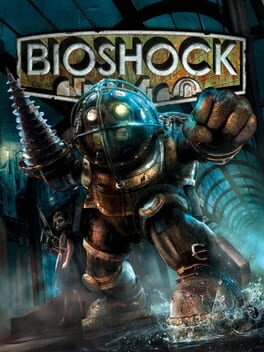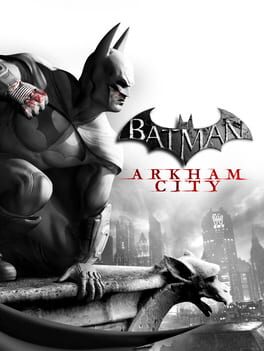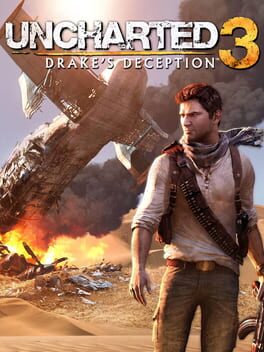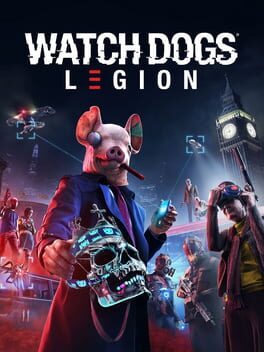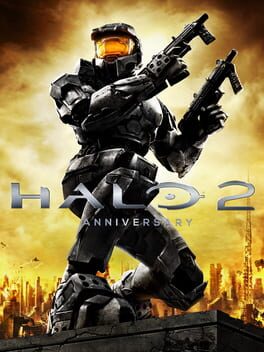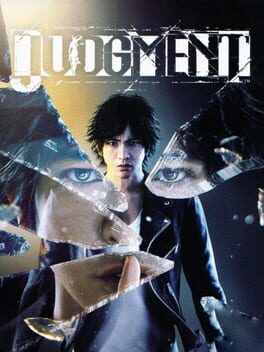zachmaycry
2019
zen and the art of running zombies over with your motorcycle
...wait that doesn't sound right. huh.
feel like this game fundamentally misunderstands its biggest virtue: the zen of riding a motorcycle through picturesque Oregon wilderness. it sort of loses all its charm when you encounter a zombie -- or a "freaker". just sort of reminds me of how tiresome zombies are, especially in a post-apocalyptic setting. ever seen Mad Max? ever read the Road? ever lived through a pandemic? all stuff that evokes the end of the world, none feature zombies.
zombie stories can be fine, i guess, but usually when you're telling a mostly end of the world serious human drama the way this game is, the zombies are simply another faction between the several human ones and the wilderness itself. and this game isn't quite the last of us levels of nature is taking back the planet. this game is set 2 years after the outbreak, not 20. a lot of civilisation still exists in pockets.
i don't know why the zombies really bothered me. at a certain point i did stop noticing them. this isn't resident evil or dying light, they really are just background noise. in fact, for about 25 hours, i didn't even engage this game's big selling point: the hordes. i completely ignored them. and when i had to face them in late-game story missions, i simply failed the missions enough times in order to skip them because i was so not interested. i cleared zero infestation zones as well.
this game really failed to engage me on the zombie front in any meaningful way. it did spark my interest with its human characters tho. at least in act 2. i stopped playing this game for about 2 years because the zombie stuff bored me to tears and the early area characters you encounter are all various degrees of boring and despicable. you really have to push forward to its second act camp - lost lake - until you begin encountering oddly compelling characters like Rikki and Iron Mike, and even antagonist Skizzo.
i say "oddly" compelling because this is a game with characters named Iron Mike and Skizzo. its lead character is a devoted backwards baseball cap wearing former biker named Deacon St. John - one of the most ridiculous and beautiful character names in gaming history. his best friend is Boozer.
i wouldn't say Days Gone gets you to care about any of its characters, not too much. they're not loveable. you're not going to find much sparking fan art of them. but what i like about most of the characters in this game from act 2 onward is how real they're portrayed. in similiar open world games like Horizon Zero Dawn or Ghost of Tsushima or any modern Far Cry or Just Cause, you're going to find a litany of stock archetypes; charmless sidekicks and maybe only slightly more charming but redundant quest givers. Days Gones has limited dramatic ambitions. it's mostly trying its darndest to evoke cable TV shows like Sons of Anarchy and the Walking Dead. but that's a step up from most video games, imo. this game has characters who feel closer to real people than most, and for that i do respect this game. narratively, it does wind up forcing these characters down some really cliched paths, but thems the breaks.
i really wish this game's open world busywork was more character focused. it's such a shame to have these rich vistas, these rich characters, and then litter the game with thankless, mindless empty busywork. clear out these zombies. chase these idiots on bikes. very few scenes of you just riding with a companion and getting to know anyone personally. especially because Deacon is the loner/drifter at heart, who's clearly keeping people out but obviously the game wants to say "but he has a heart of gold". but does he? he does wind up spending most of the game alone, listening to a truther on the radio and then yelling at the radio. so many exchanges he has in this game with another human, he's curt, rude and dismissive. he feels like he was written by two different people. he feels like all his voice lines were re-recorded for cutscenes because in-game he's a real jerk.
part of me wanted to end really positive on this game but it's kind of hard when it ends by kind of walking back on all the goodwill it built just to get its very easy and cheap conflict-centered ending. there's a really interesting moral choice made by Iron Mike about halfway through that the game just winds up using to slap him in the face with that felt incredibly misguided. at the end of the day, it just felt like it wanted to justify all of the libertarian/truther bullshit it had been yelling back at for a majority of the game.
it's a game about the frontier. and frontier justice is rewarded. a lot of this game reminded me of a non-descript western. Deke's bike is his horse. his search for his wife Sarah not too dissimilar for Ethan Edwards search for Debbie in The Searchers. the hordes of zombies are, well... i don't want to say they're Native Americans, but the game does outright link the hordes of zombies to hordes of refugees so it invites this idea of thinking of the zombies in terms of "savages". it has characters lament how the zombie destruction isn't unlike how tourists used to clog up the idyllic Oregon wilderness. calling them Freakers too sounds like tweakers and the game's radio truther has a rant about the government using drugs to weaken (white) Americans. there are some pretty horrible implications going on here but Days Gone isn't nearly introspective enough to really say anything but it certainly winds up feeling like the libertarian's wet dream in game form.
eh. idk. i hated so much of the gameplay here but i wound up enjoying riding my dumb Aloy from HZD-skinned bike around maybe the second best looking video game American wilderness (behind RDR2) and thinking about how this game features one of the better wife characters. it's a rare good wifeguy game.
...wait that doesn't sound right. huh.
feel like this game fundamentally misunderstands its biggest virtue: the zen of riding a motorcycle through picturesque Oregon wilderness. it sort of loses all its charm when you encounter a zombie -- or a "freaker". just sort of reminds me of how tiresome zombies are, especially in a post-apocalyptic setting. ever seen Mad Max? ever read the Road? ever lived through a pandemic? all stuff that evokes the end of the world, none feature zombies.
zombie stories can be fine, i guess, but usually when you're telling a mostly end of the world serious human drama the way this game is, the zombies are simply another faction between the several human ones and the wilderness itself. and this game isn't quite the last of us levels of nature is taking back the planet. this game is set 2 years after the outbreak, not 20. a lot of civilisation still exists in pockets.
i don't know why the zombies really bothered me. at a certain point i did stop noticing them. this isn't resident evil or dying light, they really are just background noise. in fact, for about 25 hours, i didn't even engage this game's big selling point: the hordes. i completely ignored them. and when i had to face them in late-game story missions, i simply failed the missions enough times in order to skip them because i was so not interested. i cleared zero infestation zones as well.
this game really failed to engage me on the zombie front in any meaningful way. it did spark my interest with its human characters tho. at least in act 2. i stopped playing this game for about 2 years because the zombie stuff bored me to tears and the early area characters you encounter are all various degrees of boring and despicable. you really have to push forward to its second act camp - lost lake - until you begin encountering oddly compelling characters like Rikki and Iron Mike, and even antagonist Skizzo.
i say "oddly" compelling because this is a game with characters named Iron Mike and Skizzo. its lead character is a devoted backwards baseball cap wearing former biker named Deacon St. John - one of the most ridiculous and beautiful character names in gaming history. his best friend is Boozer.
i wouldn't say Days Gone gets you to care about any of its characters, not too much. they're not loveable. you're not going to find much sparking fan art of them. but what i like about most of the characters in this game from act 2 onward is how real they're portrayed. in similiar open world games like Horizon Zero Dawn or Ghost of Tsushima or any modern Far Cry or Just Cause, you're going to find a litany of stock archetypes; charmless sidekicks and maybe only slightly more charming but redundant quest givers. Days Gones has limited dramatic ambitions. it's mostly trying its darndest to evoke cable TV shows like Sons of Anarchy and the Walking Dead. but that's a step up from most video games, imo. this game has characters who feel closer to real people than most, and for that i do respect this game. narratively, it does wind up forcing these characters down some really cliched paths, but thems the breaks.
i really wish this game's open world busywork was more character focused. it's such a shame to have these rich vistas, these rich characters, and then litter the game with thankless, mindless empty busywork. clear out these zombies. chase these idiots on bikes. very few scenes of you just riding with a companion and getting to know anyone personally. especially because Deacon is the loner/drifter at heart, who's clearly keeping people out but obviously the game wants to say "but he has a heart of gold". but does he? he does wind up spending most of the game alone, listening to a truther on the radio and then yelling at the radio. so many exchanges he has in this game with another human, he's curt, rude and dismissive. he feels like he was written by two different people. he feels like all his voice lines were re-recorded for cutscenes because in-game he's a real jerk.
part of me wanted to end really positive on this game but it's kind of hard when it ends by kind of walking back on all the goodwill it built just to get its very easy and cheap conflict-centered ending. there's a really interesting moral choice made by Iron Mike about halfway through that the game just winds up using to slap him in the face with that felt incredibly misguided. at the end of the day, it just felt like it wanted to justify all of the libertarian/truther bullshit it had been yelling back at for a majority of the game.
it's a game about the frontier. and frontier justice is rewarded. a lot of this game reminded me of a non-descript western. Deke's bike is his horse. his search for his wife Sarah not too dissimilar for Ethan Edwards search for Debbie in The Searchers. the hordes of zombies are, well... i don't want to say they're Native Americans, but the game does outright link the hordes of zombies to hordes of refugees so it invites this idea of thinking of the zombies in terms of "savages". it has characters lament how the zombie destruction isn't unlike how tourists used to clog up the idyllic Oregon wilderness. calling them Freakers too sounds like tweakers and the game's radio truther has a rant about the government using drugs to weaken (white) Americans. there are some pretty horrible implications going on here but Days Gone isn't nearly introspective enough to really say anything but it certainly winds up feeling like the libertarian's wet dream in game form.
eh. idk. i hated so much of the gameplay here but i wound up enjoying riding my dumb Aloy from HZD-skinned bike around maybe the second best looking video game American wilderness (behind RDR2) and thinking about how this game features one of the better wife characters. it's a rare good wifeguy game.
Much of Red Dead Redemption's most sincere moments exist in this Treehouse of Horror esque DLC.
Abigail bantering with her son, Jack, asking that when he returns after University to have spare her - "an old crone" - some pity when he's kicking her off of him in the street.
The silent look John gives Bonnie - and her silent, mournful acceptance - over her father's zombification.
The little way the nuns laugh when John calls the Mother Superior "sister".
The conversation John has with the 15 year old girl Millicent after saving her from some zombies. She says the curse is her fault for kissing a boy she isn't betrothed to. John reassures her if their sins are the cause, he has more blame than her.
These don't sound like much on paper. Nor are they numerous. But in a game full cheeky zombie humour - it's the kind of zombie game where characters can play around and have fun with the slow, half-witted zombies - these really stand out to me. And they even stand out compared to the main game, which I don't think has enough of these moments.
The reveal for the zombie curse in this game too is quite nice. I thought the game was just reusing a certain NPC model and I thought nothing of it and then, lol, the ending kind of minorly blew my mind for a second. Nothing to write home about but I dug it.
As a side note: I bought this in 2013 and only played it now. That eight years is the longest I've gone from owning a game to starting one. I wish I wasn't so afraid of zombie games and played it sooner.
Abigail bantering with her son, Jack, asking that when he returns after University to have spare her - "an old crone" - some pity when he's kicking her off of him in the street.
The silent look John gives Bonnie - and her silent, mournful acceptance - over her father's zombification.
The little way the nuns laugh when John calls the Mother Superior "sister".
The conversation John has with the 15 year old girl Millicent after saving her from some zombies. She says the curse is her fault for kissing a boy she isn't betrothed to. John reassures her if their sins are the cause, he has more blame than her.
These don't sound like much on paper. Nor are they numerous. But in a game full cheeky zombie humour - it's the kind of zombie game where characters can play around and have fun with the slow, half-witted zombies - these really stand out to me. And they even stand out compared to the main game, which I don't think has enough of these moments.
The reveal for the zombie curse in this game too is quite nice. I thought the game was just reusing a certain NPC model and I thought nothing of it and then, lol, the ending kind of minorly blew my mind for a second. Nothing to write home about but I dug it.
As a side note: I bought this in 2013 and only played it now. That eight years is the longest I've gone from owning a game to starting one. I wish I wasn't so afraid of zombie games and played it sooner.
There's maybe something in this game about America fighting the Vietnam war under the guise of fighting communism was a form of brainwashing. But I feel like that's too generous to a game that I feel like has no idea what it wants to be other than a reenactment of some people's favourite Vietnam war movie scenes. This game feels like it was written by a crazy person.
2019
trauma as primary subtext, or just 'text', needs to go away. shoo. vanish. or at least the horror community need to find another topic from the giant fishbowl of pain they mine for stories, because then you wind up with this: a game about a man with like, let's see... one-two-three-four-potentially five or six instigating traumas. two of them are so identical it genuinely feels like a mistake that they both made it into the game. criticising this game for doing a poor-to-damaging job of representing mental illness and trauma victims is giving it too much credit because it feels like a game whose writer fell asleep at the wheel and crashed through a convenience store. ignorance might not seem like a good defence but the intent seems harmless, driven by cliches and broad trends/modern conventions rather than intentionally calculating and cold.
on the flipside, i can't help but just vibe with the kind of horror design bloober are aiming to make. this feels like a better version of what resident evil 7 thought it was. the ending is maybe too painfully long and the game's moral and stealth systems seem broken and boring respectively. however, i love taking solitary walks in a big, beautiful scary forest. the monsters in the game are barely visible and present but terrifying as hell, genuinely feels like the woods themselves are attacking you. there's virtually no combat aside from a torch which i like. bloober's penchant for using video games to push physical spaces to insane proportions is on show once again too. a forest can become a warzone in a blink of an eye. a sudden burst of light can turn night into day. the blair witch house can be an insane horror maze. i love this shit, i can't deny it.
and the support the dog the game gives you. it's such a great catharsis. the dog affords the player almost the same level of comfort he offers the main character. you never feel alone or abandoned with him by your side. bullet is his name and he's one of the all-time video game pets.
i don't think bloober are capable of crafting a rich, compelling narrative. if anything, they're doing the opposite. but i do think they have a good head for horror design philosophy and can are making some of the richest visual horror games around. they're like the zack snyder/michael bay of horror games: dumb as a bag of bricks, but man they know to craft an image or two.
on the flipside, i can't help but just vibe with the kind of horror design bloober are aiming to make. this feels like a better version of what resident evil 7 thought it was. the ending is maybe too painfully long and the game's moral and stealth systems seem broken and boring respectively. however, i love taking solitary walks in a big, beautiful scary forest. the monsters in the game are barely visible and present but terrifying as hell, genuinely feels like the woods themselves are attacking you. there's virtually no combat aside from a torch which i like. bloober's penchant for using video games to push physical spaces to insane proportions is on show once again too. a forest can become a warzone in a blink of an eye. a sudden burst of light can turn night into day. the blair witch house can be an insane horror maze. i love this shit, i can't deny it.
and the support the dog the game gives you. it's such a great catharsis. the dog affords the player almost the same level of comfort he offers the main character. you never feel alone or abandoned with him by your side. bullet is his name and he's one of the all-time video game pets.
i don't think bloober are capable of crafting a rich, compelling narrative. if anything, they're doing the opposite. but i do think they have a good head for horror design philosophy and can are making some of the richest visual horror games around. they're like the zack snyder/michael bay of horror games: dumb as a bag of bricks, but man they know to craft an image or two.
2018
at first glance, functionally the same game as Horizon 3. same cars, same driving mechanics, same stunning visuals. what's not to like? "what, do you hate fun?" i had to remind myself. but you know what, maybe I kind of do.
there's like three main differences I found to be a devolution from Horizon 3.
1. the map. the UK setting is actually quite stunning tbh. although I didn't find it as rapturing as Australia. way less visually diverse, no distinct biomes interconnecting. in its place, there is the season system. which is fine but just seems like an instance where they couldn't over the obstacle of having having snow be part of the rotating dynamic weather. most of my problems with the map are the roads themselves. the Aussie roads are wide and straight. the UK are ones are thin and narrow. to accommodate this, they feature tons more rolling hills and elevated ranges. they pump up the destructibility so you can plough through more obstacles such as trees and stone walls. this gives way to Horizon 4 being way more focused on rough and tumble off-road racing. it features way more here than Horizon 3's Australia. as such, I found my playing time tied way more into enjoying 4wd's and off-road vehicles; way more time soaring in the air off large hills and crashing back and drifting across mud through various checkpoint markers. that's all good and fun but after a while I was thinking about the dissonance between this still being a hypercar fixated racer with the fact that it wanted to be played like an off-road version of Split/Second. I felt like a kid playing with his Hot Wheels or something. cool but like devoid of identity.
2. the progression. it just felt so lacking compared to 3. the wheelspins are godawful. just give me credits. why am I spinning now to win shoes, emotes and car horns? worthless, time-wasting junk. or even if I win a car, like cool. it takes away from any enjoyment of actually researching what to buy and how to upgrade it. i don't really mind that in the moment - it's fun getting cars for sure - but l don't love the feeling of charity this game gives out. then there's the story progression. Horizon 3 barely had any but the idea was more streamlined - you race and participate in events in an area, expand the festival to new locations, eventually work towards to a big showcase event, then repeat until the final event. roll credits. Horizon 4 it's like I have no idea what I am building towards. it's just 4 event types with some interesting side story stuff but none of that is properly advertised in game. eventually you unlock showcase events, but the last one the game advertises to you is a Halo related one for some reason, and then the final Delta Plane one just pops up randomly with no explanation. just feels so haphazard and careless. apparently if you get to level 20 in street races, you unlock a Goliath race that features the entire map, but that's such a long ass grind I am not going to do that. maybe in a world where this is the only game I have left to play, but otherwise, nah. the pacing is just bad.
3. the presentation. it's not remarkably different to the presentation in Horizon 3. it's equally obnoxious, garbage influencer... influenced. but at least 3 had some minimalism in the rewards screens and the garage screens. 4 has more menus and the rewards screens are just obnoxious. all the voice acting is and, the characters non-existent. the only thing feels even more corporate-sponsored and soulless. surely someone could figure out how to give this series some genuine personality and gravitas by now. it's so inoffensive as to be bland. which on its own isn't a terrible thing but it's lacking any conviction or strengths. it's like playing pretend with some kindergarten kids. just give me something more to work with other than being so proud about how much time it wants me to waste inside of it.
it's a good game. I don't even dislike. but it could better and it's lacking compared to Horizon 3. maybe it wasn't to be played as a series but as a game independent to itself. if it's the only Forza or Forza Horizon, it's probably better off for that.
there's like three main differences I found to be a devolution from Horizon 3.
1. the map. the UK setting is actually quite stunning tbh. although I didn't find it as rapturing as Australia. way less visually diverse, no distinct biomes interconnecting. in its place, there is the season system. which is fine but just seems like an instance where they couldn't over the obstacle of having having snow be part of the rotating dynamic weather. most of my problems with the map are the roads themselves. the Aussie roads are wide and straight. the UK are ones are thin and narrow. to accommodate this, they feature tons more rolling hills and elevated ranges. they pump up the destructibility so you can plough through more obstacles such as trees and stone walls. this gives way to Horizon 4 being way more focused on rough and tumble off-road racing. it features way more here than Horizon 3's Australia. as such, I found my playing time tied way more into enjoying 4wd's and off-road vehicles; way more time soaring in the air off large hills and crashing back and drifting across mud through various checkpoint markers. that's all good and fun but after a while I was thinking about the dissonance between this still being a hypercar fixated racer with the fact that it wanted to be played like an off-road version of Split/Second. I felt like a kid playing with his Hot Wheels or something. cool but like devoid of identity.
2. the progression. it just felt so lacking compared to 3. the wheelspins are godawful. just give me credits. why am I spinning now to win shoes, emotes and car horns? worthless, time-wasting junk. or even if I win a car, like cool. it takes away from any enjoyment of actually researching what to buy and how to upgrade it. i don't really mind that in the moment - it's fun getting cars for sure - but l don't love the feeling of charity this game gives out. then there's the story progression. Horizon 3 barely had any but the idea was more streamlined - you race and participate in events in an area, expand the festival to new locations, eventually work towards to a big showcase event, then repeat until the final event. roll credits. Horizon 4 it's like I have no idea what I am building towards. it's just 4 event types with some interesting side story stuff but none of that is properly advertised in game. eventually you unlock showcase events, but the last one the game advertises to you is a Halo related one for some reason, and then the final Delta Plane one just pops up randomly with no explanation. just feels so haphazard and careless. apparently if you get to level 20 in street races, you unlock a Goliath race that features the entire map, but that's such a long ass grind I am not going to do that. maybe in a world where this is the only game I have left to play, but otherwise, nah. the pacing is just bad.
3. the presentation. it's not remarkably different to the presentation in Horizon 3. it's equally obnoxious, garbage influencer... influenced. but at least 3 had some minimalism in the rewards screens and the garage screens. 4 has more menus and the rewards screens are just obnoxious. all the voice acting is and, the characters non-existent. the only thing feels even more corporate-sponsored and soulless. surely someone could figure out how to give this series some genuine personality and gravitas by now. it's so inoffensive as to be bland. which on its own isn't a terrible thing but it's lacking any conviction or strengths. it's like playing pretend with some kindergarten kids. just give me something more to work with other than being so proud about how much time it wants me to waste inside of it.
it's a good game. I don't even dislike. but it could better and it's lacking compared to Horizon 3. maybe it wasn't to be played as a series but as a game independent to itself. if it's the only Forza or Forza Horizon, it's probably better off for that.
2015
edit:
been a few days now since i finished this but i still can't figure out any real words on it.
kind of best played blind as it will reveal everything it needs to say to you in fairly blunt terms.
i loved that while it presents as horror it actually unravels into genuinely good sci-fi as it slowly demystifies itself and stays fairly grounded.
the final third when you travel into the abyss is some of the most terrifying nature ever in a game.
i love that this game presents you moral choices but doesn't really add them into the narrative. they're not "roleplaying" options but rather there to colour your experience and really make you think without game-ifying the choices. and the choices are... well all kind of the same but filled with a sincerity that makes them horrifying every time to a degree and scarred me.
it's a game that answers the question "can you tell a story about humanity without any humans in it?" the answer is yes, and maybe make it feel more human than any game with humans in it.
it's a surprisingly gentle game all things considered. no real villain. no antagonist. the monsters are scary but far and few in between and their existence is genuinely more sad than anything.
it's a game about existence that mostly feels like a collection of moments of just you existing in these various quietly nightmarish spaces. hell of an ending.
been a few days now since i finished this but i still can't figure out any real words on it.
kind of best played blind as it will reveal everything it needs to say to you in fairly blunt terms.
i loved that while it presents as horror it actually unravels into genuinely good sci-fi as it slowly demystifies itself and stays fairly grounded.
the final third when you travel into the abyss is some of the most terrifying nature ever in a game.
i love that this game presents you moral choices but doesn't really add them into the narrative. they're not "roleplaying" options but rather there to colour your experience and really make you think without game-ifying the choices. and the choices are... well all kind of the same but filled with a sincerity that makes them horrifying every time to a degree and scarred me.
it's a game that answers the question "can you tell a story about humanity without any humans in it?" the answer is yes, and maybe make it feel more human than any game with humans in it.
it's a surprisingly gentle game all things considered. no real villain. no antagonist. the monsters are scary but far and few in between and their existence is genuinely more sad than anything.
it's a game about existence that mostly feels like a collection of moments of just you existing in these various quietly nightmarish spaces. hell of an ending.
2015
ah-hooo!
what if the 1% truly were a secret race of reverse vampires who are literally feasting on the lower class? baby, the order 1886 says just maybe they are.
and it says it with a completely straight face. no shed of irony and playfulness. and i can see how, if you're coming to a piece of fiction that clearly has so much of itself steeped in an absurd genre premise, maybe you want something more like devil may cry.
but what i appreciate about the order 1886 - beyond the fact that it might the single most expensive looking game i've ever played, like it still looks better than just about any game made since - is that it's the inverse of uncharted. almost identical gameplay and camera. maybe order 1886 is a little heavier, a little more meaty and visceral. maybe it's gunplay is a whole level above anything naughty dog have managed to pull off. but instead of taking the real word and adding in quips and the supernatural, the order shoves you in to an alternate steampunk history full of werewolves (who you knife fight) and then removes all the genre personality. it winds up feeling like a story about real people in a lived-in world where things matter as opposed to just action movie archetypes parading through a pirates of the caribbean movie set. it also has two NPCs who show their dicks.
i like uncharted a lot. but gaming is full of uncharteds. it doubles down on uncharteds every day. sony in particular would spend the following years making technically impressive and visually pretty yet soft-hearted open world checklist games that go on and on (see: spidey, horizon, days gone, tsushima). where are the punchy, poe-faced linear narrative games? where are the games that have the balls to show you some dicks every few hours, interspersed between werewolf knife-fights? there is no AAA gaming equivalent to deadwood. this ain't that either. but it's sort of close, and was definitely a step in that direction. shame it's basically the black sheep of sony's ps4 first-party lineup. gaming would be marginally better today taking notes from this.
what if the 1% truly were a secret race of reverse vampires who are literally feasting on the lower class? baby, the order 1886 says just maybe they are.
and it says it with a completely straight face. no shed of irony and playfulness. and i can see how, if you're coming to a piece of fiction that clearly has so much of itself steeped in an absurd genre premise, maybe you want something more like devil may cry.
but what i appreciate about the order 1886 - beyond the fact that it might the single most expensive looking game i've ever played, like it still looks better than just about any game made since - is that it's the inverse of uncharted. almost identical gameplay and camera. maybe order 1886 is a little heavier, a little more meaty and visceral. maybe it's gunplay is a whole level above anything naughty dog have managed to pull off. but instead of taking the real word and adding in quips and the supernatural, the order shoves you in to an alternate steampunk history full of werewolves (who you knife fight) and then removes all the genre personality. it winds up feeling like a story about real people in a lived-in world where things matter as opposed to just action movie archetypes parading through a pirates of the caribbean movie set. it also has two NPCs who show their dicks.
i like uncharted a lot. but gaming is full of uncharteds. it doubles down on uncharteds every day. sony in particular would spend the following years making technically impressive and visually pretty yet soft-hearted open world checklist games that go on and on (see: spidey, horizon, days gone, tsushima). where are the punchy, poe-faced linear narrative games? where are the games that have the balls to show you some dicks every few hours, interspersed between werewolf knife-fights? there is no AAA gaming equivalent to deadwood. this ain't that either. but it's sort of close, and was definitely a step in that direction. shame it's basically the black sheep of sony's ps4 first-party lineup. gaming would be marginally better today taking notes from this.
2023
From a glance it's an exciting action throwback to the PS2/PS3 era of janky Japanese hack n slash.
The actual product is a clumsy, clunky often tortuous experience in either bad or just plain stupid game design. Frustrating in ways that feel incongruous to the propulsive momentum the gameplay promises, with no real intrinsic reward other than relief from not having to battle the same nauseating wave of enemies again and again for an hour.
Still. The wrapping is okay and every few minutes I'd exclaim, "that's sick" to my lonely room.
The actual product is a clumsy, clunky often tortuous experience in either bad or just plain stupid game design. Frustrating in ways that feel incongruous to the propulsive momentum the gameplay promises, with no real intrinsic reward other than relief from not having to battle the same nauseating wave of enemies again and again for an hour.
Still. The wrapping is okay and every few minutes I'd exclaim, "that's sick" to my lonely room.
2008
2007
the video game equivalent of Chris Hemsworth in the 2016 Fembuters reboot wearing reading glasses with no lenses. a himbo reading a book upside down.
BUT, even if it's not as intelligent and put together as it thinks it is, even if there is a gaping chasm where gameplay and narrative should connect, it's still a very pretty game and an entertaining experience in its pure vacuousness.
BioShock as an aesthetic is the tops, imo. the fucking sea green tinted lighting. the art deco architecture. the really fun 40s/50s voice acting. the "environmental storytelling" gimmick here seems more genuine because this feels like one of the first to go this far with it and just paint graffiti over everything and pose corpses everywhere. it's a game world/setting that feels really unique to me still 14 years later.
i wish the writing wasn't so hamfisted and the narrative was maybe more straight up a pulp noir detective story and maybe all the Ayn Rand/objectivism stuff was left a little more unsaid and just used as decoration.
i always put off playing this because I played Infinite at release as my first BioShock and then gradually learned to hate it over the years, and i always presumed 1 would be like homework. I forgot that BioShock is basically call of duty for art kids (the way Nolan is Michael Bay for art kids). love this game's shotgun. the shooting is actually pretty crap all things considered (the way Nolan's action choreography is crap too) but the atmosphere really makes up for it and i always felt like pushing forward to see what new lovingly decorated arena i'd be mindlessly lowing fools away in - which is often all i am looking for at a baseline in a game.
BUT, even if it's not as intelligent and put together as it thinks it is, even if there is a gaping chasm where gameplay and narrative should connect, it's still a very pretty game and an entertaining experience in its pure vacuousness.
BioShock as an aesthetic is the tops, imo. the fucking sea green tinted lighting. the art deco architecture. the really fun 40s/50s voice acting. the "environmental storytelling" gimmick here seems more genuine because this feels like one of the first to go this far with it and just paint graffiti over everything and pose corpses everywhere. it's a game world/setting that feels really unique to me still 14 years later.
i wish the writing wasn't so hamfisted and the narrative was maybe more straight up a pulp noir detective story and maybe all the Ayn Rand/objectivism stuff was left a little more unsaid and just used as decoration.
i always put off playing this because I played Infinite at release as my first BioShock and then gradually learned to hate it over the years, and i always presumed 1 would be like homework. I forgot that BioShock is basically call of duty for art kids (the way Nolan is Michael Bay for art kids). love this game's shotgun. the shooting is actually pretty crap all things considered (the way Nolan's action choreography is crap too) but the atmosphere really makes up for it and i always felt like pushing forward to see what new lovingly decorated arena i'd be mindlessly lowing fools away in - which is often all i am looking for at a baseline in a game.
2011
the design document was a napkin that simply read 'how about balls to the wall hollywood set-piece after set-piece?'
the escalation seen between drake's fortune and among thieves is quadrupled, and then doubled once or twice more for good measure here, until drake's deception finally winds up making among thieves look like a ken burns documentary in comparison.
the bond and indy jones influences are heavy. i think i called uncharted 2 the best james bond anything for reasons i can't quite remember. i think uncharted 3 excels so well at taking those influences and using them in ways that feel as fresh as the kind of big, expensive spectacle action you can only find in movies like fury road or the mcquarrie mission impossible movies (and to an extent the john wick sequels). to me uncharted 3 is a game that belongs in the same modern pantheon as those movies. i got just as much of a thrill from the convoy sequence as i did from fury road. just as excited to play the final confrontation between drake and talbot as i was to watch cruise and cavill square off on the cliff in mi fallout. i think it really is superb hollywood action all the way through. just fantastic work.
the escalation seen between drake's fortune and among thieves is quadrupled, and then doubled once or twice more for good measure here, until drake's deception finally winds up making among thieves look like a ken burns documentary in comparison.
the bond and indy jones influences are heavy. i think i called uncharted 2 the best james bond anything for reasons i can't quite remember. i think uncharted 3 excels so well at taking those influences and using them in ways that feel as fresh as the kind of big, expensive spectacle action you can only find in movies like fury road or the mcquarrie mission impossible movies (and to an extent the john wick sequels). to me uncharted 3 is a game that belongs in the same modern pantheon as those movies. i got just as much of a thrill from the convoy sequence as i did from fury road. just as excited to play the final confrontation between drake and talbot as i was to watch cruise and cavill square off on the cliff in mi fallout. i think it really is superb hollywood action all the way through. just fantastic work.
2020
utterly boring and hollow. i am fascinated with its depiction of a future London, however. compare it to something like cyberpunk's fictional night city and there is something thoroughly more interesting about a real city in a game. real places, real history. only problem with a game like Legion is its complete lack of culture and humanity. you can play as anyone, and as such you're basically no one. you can hack everyone but you can't really talk to anyone. the whole game is about systematic oppression but there's no personal stories about anyone of it. they can't call out the police. there are signs that down with "violent" cops. game is so cowardly.
2014
A year off between playing the first third and finishing the rest didn't do this game any justice. Its weird mix of hoorah US military sensationalism and goofy sci-fi jibber jabber really confounds me. I kind of understood the appeal of the first one but this just feels like one of those movies they mock on Mystery Science Theatre. And the shooting and guns are all woeful. I don't know, man. It's just so bland and unappealing to me. Some of the art in the updated anniversary edition is neat, I guess. Kinda DMT-esque.
I'd like to add this next part for me, as it is a journal entry of sorts.
I started this in October 2021 with the intent to plough through the whole series. But I met someone online while playing it, and this new friend, she slowly helped to pull me out of my depression. Subsequently, however, this game and series got smeared with the unfortunate association of ... well, all my sadness and dark thoughts. I couldn't play it without thinking of my first time meeting her, and even though that should he a happy association, my mind would drift directly to the feelings I had leading up to that (all of which were deeply negative). It inevitably took over a year for me to come to terms with the fact that I'm better off now than I was back then, that I no longer have to let the loneliness I felt then dictate my life now (and especially as my friendship grew and evolved and remains one of the more stable things in my life, that there no longer remains any doubts of losing that is a huge boost to my self-esteem).
I didn't think this was a very good game but the act of returning to and finishing it is actually one of my proudest gaming moments of 2022, as it's a mental block I didn't think I'd get over (just three months ago I was staying with my friend and crying in their living room while they went out, as I thought back on how I got from playing Halo 2 to having the road trip of my lifetime; crying because at the time of starting Halo 2 I didn't really imagine myself being alive a year from then let alone enjoying myself so much).
This is a weirdly personal game for me. A lot of heavy, unrelated emotion tied to it. Shame it sucked.
I'd like to add this next part for me, as it is a journal entry of sorts.
I started this in October 2021 with the intent to plough through the whole series. But I met someone online while playing it, and this new friend, she slowly helped to pull me out of my depression. Subsequently, however, this game and series got smeared with the unfortunate association of ... well, all my sadness and dark thoughts. I couldn't play it without thinking of my first time meeting her, and even though that should he a happy association, my mind would drift directly to the feelings I had leading up to that (all of which were deeply negative). It inevitably took over a year for me to come to terms with the fact that I'm better off now than I was back then, that I no longer have to let the loneliness I felt then dictate my life now (and especially as my friendship grew and evolved and remains one of the more stable things in my life, that there no longer remains any doubts of losing that is a huge boost to my self-esteem).
I didn't think this was a very good game but the act of returning to and finishing it is actually one of my proudest gaming moments of 2022, as it's a mental block I didn't think I'd get over (just three months ago I was staying with my friend and crying in their living room while they went out, as I thought back on how I got from playing Halo 2 to having the road trip of my lifetime; crying because at the time of starting Halo 2 I didn't really imagine myself being alive a year from then let alone enjoying myself so much).
This is a weirdly personal game for me. A lot of heavy, unrelated emotion tied to it. Shame it sucked.
2018
Is good writing too high of an ambition?
I was listening to Jacob Geller and Blake Hester's Something Rotten podcast, where the two men discuss Max Payne 3 and the two Kane & Lynch games. Geller brought up that he heard Hester share a hot take: that the best video game stories are only, barely, on par with mediocre movies and TV.
My response to this take evolved through three stages;
1) "omg no way! I totally teared up playing Red Dead Redemption and The Last of Us!"
2) "hmm, yeah. You're write. Games suck at writing. It's a special skill that game developers aren't necessarily equipped for. To paraphrase the oft-quoted John Carmack, story in games is like story in porn. Most games are not developed from a script first, but with a series of system and mechanic documents in place first with the story and writing poured on after like a cheap, cold tin of tomato sauce over a hot plate of pasta (at best, maybe it's more like a little garnish)."
3) "you know what, who cares? Most movies and TV have mediocre writing. Green Book won for best Original Screenplay at the 2019 Oscars. The Avengers movies made like a billion dollars. Writing isn't easy for anyone, no matter the medium. Not to mention, film, to me, is like a sensory artform. Story is cool but movies aren't literature. And even literature can appeal on prose over narrative and "character development". But cinema to me is all light and montage. My favourite movie is Michael Mann's Miami Vice, and I can't explain why because I've never really been able to properly articulate the feeling that movie's digital grain gives me. It is quite literally "the vibe". The work of filmmakers like Paul WS Anderson, Edward Yang and Pedro Costa excite me, too, purely on a compositional level. Late era Tony Scott's avant garde editing style isn't something I am equipped to talk about, all I know is when I see it I go gaga. Similarly, the collaborative work of Martin Scorsese and editor Thelma Schoonmaker just tickles a part of my brain - and I could spend 1000 years still fail to explain why and how the rhythms of their cuts dazzle me.
Anyway, my point is, I don't come to film for writing, so why should I come to games for it? I ask myself this because good game writing is still, probably, what I consider the biggest hook. Or I consider character writing, specifically, a big hook. I need someone and something to care about to pull me through to a game's conclusion... at least most of the time. I certainly don't come to games for gameplay. I mean, I do, but not really. I don't really come to games for complex gameplay, at least. I don't play games to master systems. I do return to shooters and sword-swinging adventures a lot but that's partly because, with brawlers aside, that's 2/3s of combat in combat-centric games.
What I am beginning to think, however, is maybe I come to games for the vibes; for the same visual sensory appeal I get from movies. I come to games for - oh wow, I don't want to say it... - the digital spaces. The way games create architecture and worlds and allow you the freedom to explore rich, detailed spaces is so exciting. I don't want to live in these worlds, but I want to occupy them the same way I want to occupy the Baltimore depicted in The Wire or the west from Blood Meridian. I love reading because I love when my imagination works, filling in all the visual details around the worlds. When I read Raymond Chandler and I picture 30s/40s California; when I read The Wheel of Time and picture the endless Aiel Waste (wow, I read so little, these aren't great references lol). I love how games can even better render those details, and then let you literally, physically explore them. In a way, games are living dreams.
I've lost track of a coherent thesis here.
To swing it to Judgment. I don't know that Judgment is well written. It hinges on a lot of cliches and rote twists. The dialogue isn't particularly remarkable. Characters are complex only in the sense that they're all morally grey, and the ones who aren't are just good people. Its whole deal can be summed up as "isn't the truth really cool?" But, man, as a vibe, I dug it a lot. I loved noir twinges. The smoky, cramped, humid detective office. The stale, sterile courtrooms and hospital hallways. The busy, glittery Kamurocho streets. I love the soap opera plot. I like a good mystery, and there aren't many (non-visual novel) games wholly dedicated to unravelling a mystery. At the end of the day, it is less Raymond Chandler and more daytime court TV, but I was pretty damned hooked.
A lot of what Judgment exemplifies best is what I do consider game writing though. And it's not the execution I appreciate but the set up. I love when game presents the player with a fully fleshed out, lived-in universe, especially when that universe has a footing in the real world, depicting real people/cultures. A love when a game presents you with a character who has their own thoughts and feelings and history that exists beyond the player. Judgment is maybe the best example of what I think of when I hear the term "immersive sim". Not just because the game is maybe the best execution of one of the immersive sim genre's grandfathers, Warren Spector's idea for the "one perfect block" concept. Judgment isn't exactly a living sim. And it's not an open world game per se, so it doesn't really even matter. sure, you can't interact with everyone and everything. But you walk the streets of Kamurocho and you get a real sense of place and atmosphere and life that exists independent of your actions. You can walk into enough interiors, and around plenty of pedestrians to feel like you're in a real city. It's small enough, too, to memorise after 10-ish hours of playtime.
I think in contrast, too much of the actual immersive sim genre is dedicated to bringing to life unreal places to life, not reality and of its sober doldrums. It's a genre dedicated to placing very specific characters on dedicated paths purely to serve as obstacles for the player. Every nook and cranny is explorable but only because it wants you to collect things, not take in and truly occupy those spaces. It presents you with alternate paths with both violent and stealthy, pacifist routes ahead because it wants you to feel catered to, because it values choice, even though it cannot admit choice in video games is always a carefully, constructed lie/illusion. It's a genre with its head in the clouds, and you hoisted up on its shoulders in effort to make you feel important.
I don't know how I got here but I think a really "immersive" games is one that places you in a real location, with real history, and most importantly in the shoes of a real, pre-spec'd character - one, who again, let's say has their own character sheet and could - at least, and most certainly - in the game world exist independently of the player. I think of games like Disco Elysium, the little bit of The Witcher 2 I played hours before Judgment, Red Dead Redemption II (and Red Dead Redemption). For me, when I want to roleplay, I want to be somebody else, and not in the Ready Player One/Comic-Con cosplay way where I am me but with wackier hair and nicer clothes, or one where I am, like, Godzilla. I want to be a whole person. To me, that's immersion - when a game can successfully transfer that feeling over to you and make you feel like another person for 10/20/40+ hours. Judgment does that, in my opinion. Takayuki Yagami isn't some amazingly written individual, but the game goes to lengths to give him a history and a personality and reasons to care about the people around him. I don't care that it's not as good as The Sopranos but it's as good as a show like Justified or Bosch - neither of which I think of as mediocre (actually two of my all-time fave shows) - and I think that's a safe, reasonable ambition most character-action AAA games can aim for. The best games can be as well-written as Bosch... if they want to be. Not that they really have to be.
Maybe I am overrating this but the experience reminded me a lot of what I got out of Final Fantasy VII Remake and Metro Exodus. That's starting to become the baseline for what I consider a good, modern game, I suppose.
I was listening to Jacob Geller and Blake Hester's Something Rotten podcast, where the two men discuss Max Payne 3 and the two Kane & Lynch games. Geller brought up that he heard Hester share a hot take: that the best video game stories are only, barely, on par with mediocre movies and TV.
My response to this take evolved through three stages;
1) "omg no way! I totally teared up playing Red Dead Redemption and The Last of Us!"
2) "hmm, yeah. You're write. Games suck at writing. It's a special skill that game developers aren't necessarily equipped for. To paraphrase the oft-quoted John Carmack, story in games is like story in porn. Most games are not developed from a script first, but with a series of system and mechanic documents in place first with the story and writing poured on after like a cheap, cold tin of tomato sauce over a hot plate of pasta (at best, maybe it's more like a little garnish)."
3) "you know what, who cares? Most movies and TV have mediocre writing. Green Book won for best Original Screenplay at the 2019 Oscars. The Avengers movies made like a billion dollars. Writing isn't easy for anyone, no matter the medium. Not to mention, film, to me, is like a sensory artform. Story is cool but movies aren't literature. And even literature can appeal on prose over narrative and "character development". But cinema to me is all light and montage. My favourite movie is Michael Mann's Miami Vice, and I can't explain why because I've never really been able to properly articulate the feeling that movie's digital grain gives me. It is quite literally "the vibe". The work of filmmakers like Paul WS Anderson, Edward Yang and Pedro Costa excite me, too, purely on a compositional level. Late era Tony Scott's avant garde editing style isn't something I am equipped to talk about, all I know is when I see it I go gaga. Similarly, the collaborative work of Martin Scorsese and editor Thelma Schoonmaker just tickles a part of my brain - and I could spend 1000 years still fail to explain why and how the rhythms of their cuts dazzle me.
Anyway, my point is, I don't come to film for writing, so why should I come to games for it? I ask myself this because good game writing is still, probably, what I consider the biggest hook. Or I consider character writing, specifically, a big hook. I need someone and something to care about to pull me through to a game's conclusion... at least most of the time. I certainly don't come to games for gameplay. I mean, I do, but not really. I don't really come to games for complex gameplay, at least. I don't play games to master systems. I do return to shooters and sword-swinging adventures a lot but that's partly because, with brawlers aside, that's 2/3s of combat in combat-centric games.
What I am beginning to think, however, is maybe I come to games for the vibes; for the same visual sensory appeal I get from movies. I come to games for - oh wow, I don't want to say it... - the digital spaces. The way games create architecture and worlds and allow you the freedom to explore rich, detailed spaces is so exciting. I don't want to live in these worlds, but I want to occupy them the same way I want to occupy the Baltimore depicted in The Wire or the west from Blood Meridian. I love reading because I love when my imagination works, filling in all the visual details around the worlds. When I read Raymond Chandler and I picture 30s/40s California; when I read The Wheel of Time and picture the endless Aiel Waste (wow, I read so little, these aren't great references lol). I love how games can even better render those details, and then let you literally, physically explore them. In a way, games are living dreams.
I've lost track of a coherent thesis here.
To swing it to Judgment. I don't know that Judgment is well written. It hinges on a lot of cliches and rote twists. The dialogue isn't particularly remarkable. Characters are complex only in the sense that they're all morally grey, and the ones who aren't are just good people. Its whole deal can be summed up as "isn't the truth really cool?" But, man, as a vibe, I dug it a lot. I loved noir twinges. The smoky, cramped, humid detective office. The stale, sterile courtrooms and hospital hallways. The busy, glittery Kamurocho streets. I love the soap opera plot. I like a good mystery, and there aren't many (non-visual novel) games wholly dedicated to unravelling a mystery. At the end of the day, it is less Raymond Chandler and more daytime court TV, but I was pretty damned hooked.
A lot of what Judgment exemplifies best is what I do consider game writing though. And it's not the execution I appreciate but the set up. I love when game presents the player with a fully fleshed out, lived-in universe, especially when that universe has a footing in the real world, depicting real people/cultures. A love when a game presents you with a character who has their own thoughts and feelings and history that exists beyond the player. Judgment is maybe the best example of what I think of when I hear the term "immersive sim". Not just because the game is maybe the best execution of one of the immersive sim genre's grandfathers, Warren Spector's idea for the "one perfect block" concept. Judgment isn't exactly a living sim. And it's not an open world game per se, so it doesn't really even matter. sure, you can't interact with everyone and everything. But you walk the streets of Kamurocho and you get a real sense of place and atmosphere and life that exists independent of your actions. You can walk into enough interiors, and around plenty of pedestrians to feel like you're in a real city. It's small enough, too, to memorise after 10-ish hours of playtime.
I think in contrast, too much of the actual immersive sim genre is dedicated to bringing to life unreal places to life, not reality and of its sober doldrums. It's a genre dedicated to placing very specific characters on dedicated paths purely to serve as obstacles for the player. Every nook and cranny is explorable but only because it wants you to collect things, not take in and truly occupy those spaces. It presents you with alternate paths with both violent and stealthy, pacifist routes ahead because it wants you to feel catered to, because it values choice, even though it cannot admit choice in video games is always a carefully, constructed lie/illusion. It's a genre with its head in the clouds, and you hoisted up on its shoulders in effort to make you feel important.
I don't know how I got here but I think a really "immersive" games is one that places you in a real location, with real history, and most importantly in the shoes of a real, pre-spec'd character - one, who again, let's say has their own character sheet and could - at least, and most certainly - in the game world exist independently of the player. I think of games like Disco Elysium, the little bit of The Witcher 2 I played hours before Judgment, Red Dead Redemption II (and Red Dead Redemption). For me, when I want to roleplay, I want to be somebody else, and not in the Ready Player One/Comic-Con cosplay way where I am me but with wackier hair and nicer clothes, or one where I am, like, Godzilla. I want to be a whole person. To me, that's immersion - when a game can successfully transfer that feeling over to you and make you feel like another person for 10/20/40+ hours. Judgment does that, in my opinion. Takayuki Yagami isn't some amazingly written individual, but the game goes to lengths to give him a history and a personality and reasons to care about the people around him. I don't care that it's not as good as The Sopranos but it's as good as a show like Justified or Bosch - neither of which I think of as mediocre (actually two of my all-time fave shows) - and I think that's a safe, reasonable ambition most character-action AAA games can aim for. The best games can be as well-written as Bosch... if they want to be. Not that they really have to be.
Maybe I am overrating this but the experience reminded me a lot of what I got out of Final Fantasy VII Remake and Metro Exodus. That's starting to become the baseline for what I consider a good, modern game, I suppose.
